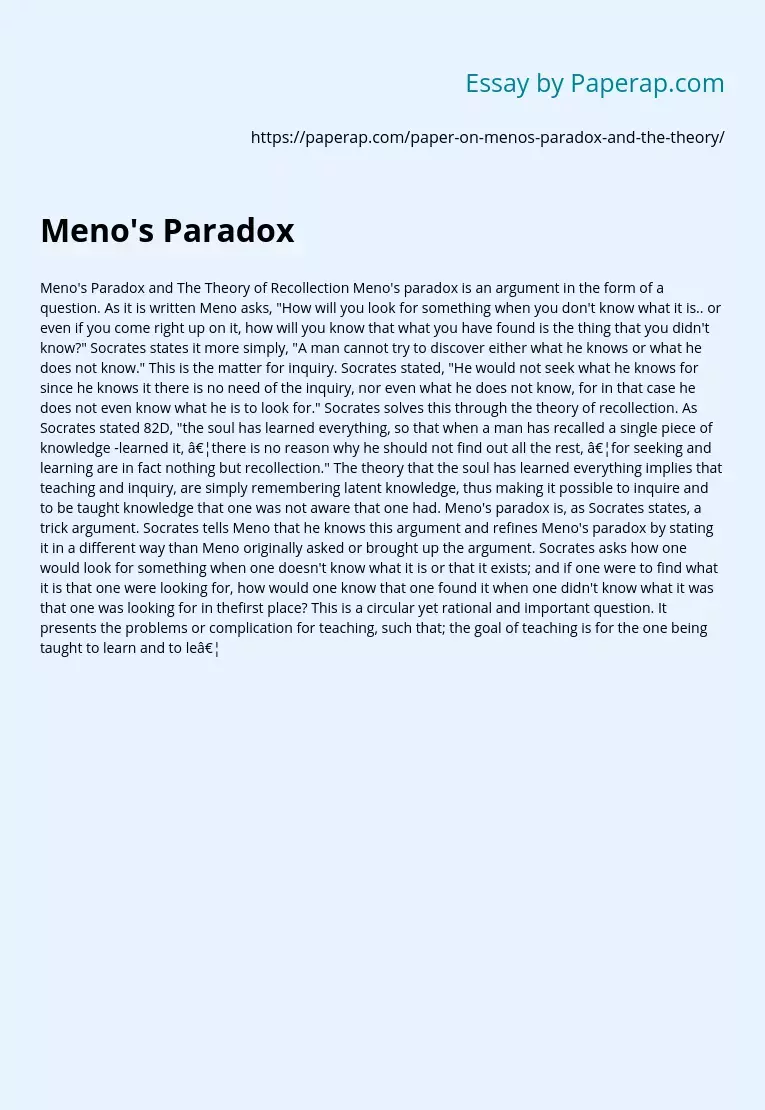Meno's Paradox & Recollection Theory
Meno’s Paradox and The Theory of Recollection Meno’s paradox is an argument in the form of a question. As it is written Meno asks, “How will you look for something when you don’t know what it is.. or even if you come right up on it, how will you know that what you have found is the thing that you didn’t know?” Socrates states it more simply, “A man cannot try to discover either what he knows or what he does not know.
” This is the matter for inquiry. Socrates stated, “He would not seek what he knows for since he knows it there is no need of the inquiry, nor even what he does not know, for in that case he does not even know what he is to look for.” Socrates solves this through the theory of recollection. As Socrates stated 82D, “the soul has learned everything, so that when a man has recalled a single piece of knowledge -learned it, …there is no reason why he should not find out all the rest, …for seeking and learning are in fact nothing but recollection.
” The theory that the soul has learned everything implies that teaching and inquiry, are simply remembering latent knowledge, thus making it possible to inquire and to be taught knowledge that one was not aware that one had. Meno’s paradox is, as Socrates states, a trick argument. Socrates tells Meno that he knows this argument and refines Meno’s paradox by stating it in a different way than Meno originally asked or brought up the argument.
Socrates asks how one would look for something when one doesn’t know what it is or that it exists; and if one were to find what it is that one were looking for, how would one know that one found it when one didn’t know what it was that one was looking for in thefirst place? This is a circular yet rational and important question. It presents the problems or complication for teaching, such that; the goal of teaching is for the one being taught to learn and to le…
Meno's Paradox & Recollection Theory. (2019, Dec 05). Retrieved from https://paperap.com/paper-on-menos-paradox-and-the-theory/

